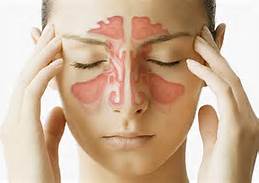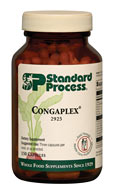Sinus Infections is Irritation
of Mucous Membranes
of Mucous Membranes

|
Voltaire |
Sinus infections affect over 39 million Americans every year. It typically occurs when the mucous membranes in your nose and sinuses become irritated by a cold, allergy, or pollution, for example, which then cause them to become inflamed. Once inflamed, the motion of your cilia (the tiny hairs that coat the mucous membranes and are responsible for moving mucus over their surfaces) slows down. At the same time, the irritation stimulates your mucous glands to secrete more mucus than usual to dilute the bacteria. As a result, mucus gets trapped in your sinuses, where it can easily become infected. Symptoms of sinus infection include:
- Congestion and pressure around your eyes, cheeks and forehead
- Thick, green or yellow mucus
- Toothache
- Cold symptoms lasting more than 10 days
- Postnasal drip (excess mucus dripping down the back of your throat)
- Fatigue
The problem with sinus issues is that that they're very easily misdiagnosed. Sinus problems and post-nasal drip can actually be a tip-off that you're being affected by mold or fungi. It's important to understand that antibiotics can make disaster for this problem. If used long-term, they can lead to very serious complications that may be very difficult to remediate against, including chronic yeast infections and impaired immune function. Furthermore, the vast majority of chronic sinusitis cases may be due to exposure to mold or fungi rather than bacteria, which antibiotics will have no effect on at all.
In fact, research done by the Mayo Clinic in the 1990s that strongly suggests nearly all chronic sinusitis is caused by fungi, but blamed on bacteria and then mistreated using antibiotics. Yet, most physicians are still unaware of this study, or at least of its significance. The Mayo Clinic study suggests that 96 percent of the people who suffer from chronic sinusitis are "fungal sensitized," meaning they have immune responses triggered by inhaled fungal organisms! This explains why antibiotics are so ineffective for chronic sinusitis as they target bacteria, NOT fungi. Antibiotics and steroids can actually worsen fungal-related infections by destroying your body's natural biological terrain, creating an internal incubation ground for further fungal growth. The bottom line is, if you have chronic sinusitis, you must approach it from the perspective of a fungal infection first, not a bacterial infection, even if it means having to educate your healthcare provider.
- What is the difference between cold or flu and sinus infections
- What humidity and temperature has to do with sinus infection
- How to treat sinuses without drugs
- What is nasal irrigation and how to do it











